Africa
Kyiv residents react after Ukraine and the US sign a mineral deal

Kyiv residents and family members of missing Ukrainian soldiers reacted to the U.S. and Ukraine mineral deal with mixed feelings on Thursday.
After months of tense negotiations, the U.S. and Ukraine signed a deal that is expected to give Washington access to the country’s critical minerals and other natural resources, an agreement Kyiv hopes will secure long-term support for its defense against Russia.
But few details have been shared about what the deal will entail.
Diana Abramova joined hundreds of others at a protest for the families of missing Ukrainian soldiers on Kyiv’s Independence Square.
Her father Valentyn Stroyvans went missing last year fighting in Toretsk in the Donetsk region.
She told the Associated Press she hopes that the world will unite to help to end the war and bring back their loved ones.
“Any news is hard to take, whether it’s about negotiations or something else. I still believe and hope that any action will yield some result that will lead our Ukraine to victory. Only to victory,” she said.
Despite not knowing the details of the deal, 74-year-old university lecturer Natalia Vysotska expressed optimism, saying “if it was signed, then our experts must have compared the pros and cons. I hope it will be beneficial.”
But others felt more depleted. For 37-year-old Iryna Vasylevska, the deal served as another reminder that “our land is just a bargaining chip for the rest of the world and that we do not have our own full protection.”
“My vision is that instead of strengthening ourselves, we continue to give it all away,” she said. “I feel terrible about the fact that our human resources in war are considered as meat. I am sure that there are other possible agreements, except those that will make us poor in all areas.”
According to Ukrainian officials, the version of the deal signed Wednesday is far more beneficial to Ukraine than previous iterations, which they said reduced Kyiv to a junior partner and gave Washington unprecedented rights to the country’s resources.
The agreement — which the Ukrainian parliament must ratify — would establish a reconstruction fund for Ukraine that Ukrainian officials hope will be a vehicle to ensure future American military assistance.
A previous agreement was nearly signed before being derailed in a tense Oval Office meeting involving U.S. President Donald Trump, U.S. Vice President JD Vance and Ukrainian President Volodymyr Zelenskyy.
Africa
Commonwealth lifts Gabon’s partial suspension following April presidential vote
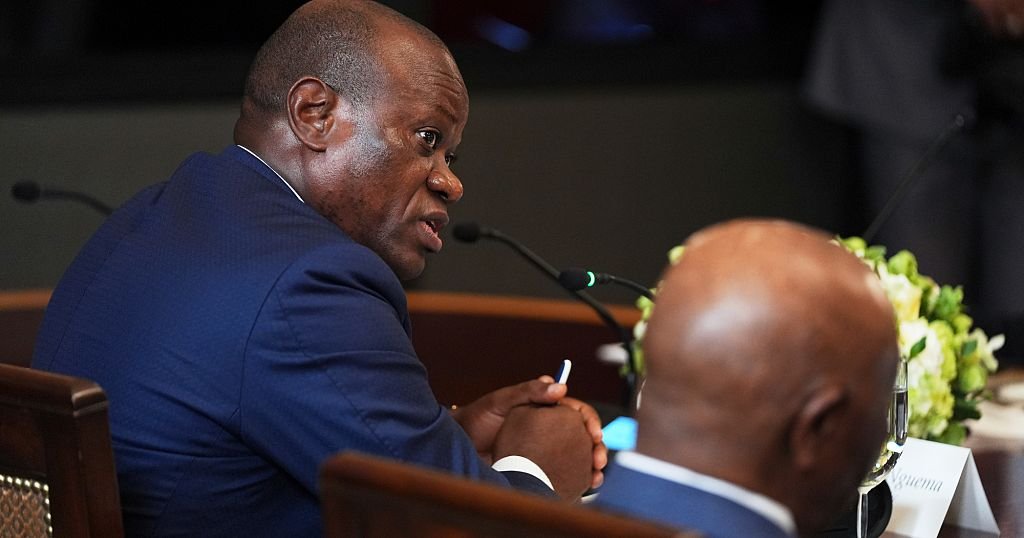
Gabon has been restored to full membership of the Commonwealth following the country’s recent presidential election.
The association made the announcement on Tuesday, following a meeting of the Commonwealth Ministerial Action Group.
Gabon was partially suspended from the 56-nation group in September 2023, a month after the elected government of Ali Bongo Ondimba was ousted in a coup.
In April this year, coup leader Brice Oligui Nguema won the presidential election with almost 95 percent of the vote.
The Commonwealth ruled the poll was credible, transparent and inclusive and decided to lift Gabon’s partial suspension.
The CMAG welcomed Gabon’s return to constitutional democracy and reiterated its condemnation of any unconstitutional overthrow of a duly elected government, stressing that “such action violates the democratic principles at the heart of the Commonwealth and is a serious breach of the Commonwealth Charter.”
It said Gabon would remain on the group’s agenda as it works towards fulfilling its obligations under the Commonwealth Charter.
Rooted in the British Empire, the Commonwealth is now open to all countries. Togo and Gabon are the newest members, both joining in 2022.
Africa
Saïdia: Morocco’s Blue Pearl of the Mediterranean
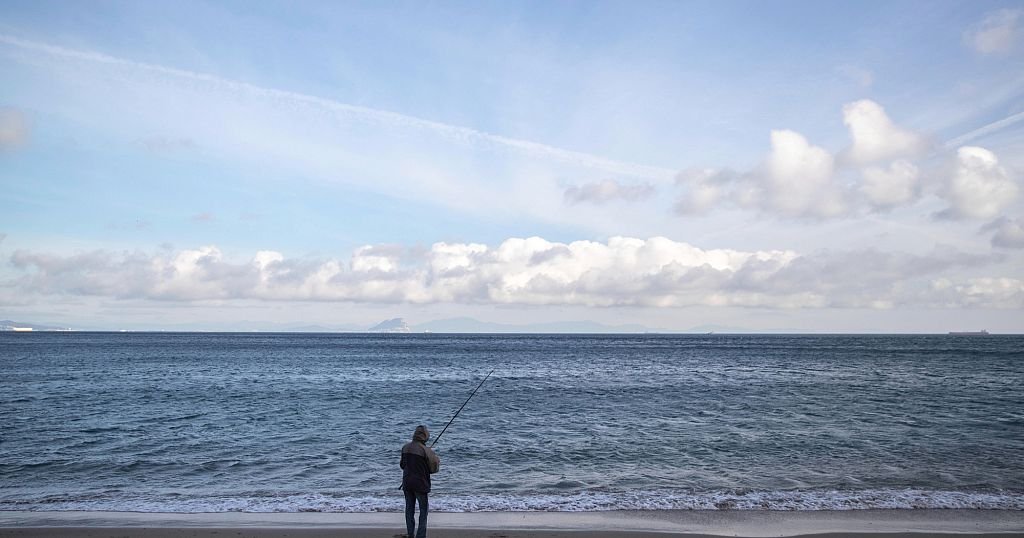
Summer in Saïdia, often called the “Blue Pearl of the Mediterranean”, is a vibrant mix of sun, sea and serenity.
Situated in north-east Morocco, close to the Algerian border, Saïdia is renowned for its 14 kilometres of golden sandy beaches stretching out over calm turquoise waters.
From June to September, the town is bustling with locals and international visitors eager to enjoy its Mediterranean charm, gentle sea breezes and lively atmosphere.
“A lot of us come to Saïdia, a lot of people from the east come because it’s beautiful, and people from all over Morocco come here too,” says one young man on his way to the beach.
The seafront promenade, lined with cafés, restaurants and family resorts, becomes the heart of summer evenings. As the sun sets, the smell of grilled seafood fills the air and music blares from the terraces where families and friends gather.
For those seeking adventure, Saïdia offers much more than just sunbathing. Water sports such as jet skiing, banana boating and sailing are popular daytime activities. Inland, you can explore the Moulouya National Park, a haven for birds and nature lovers.
Africa
Trump to slap 10% tariff on small nations including in the Caribbean and Africa
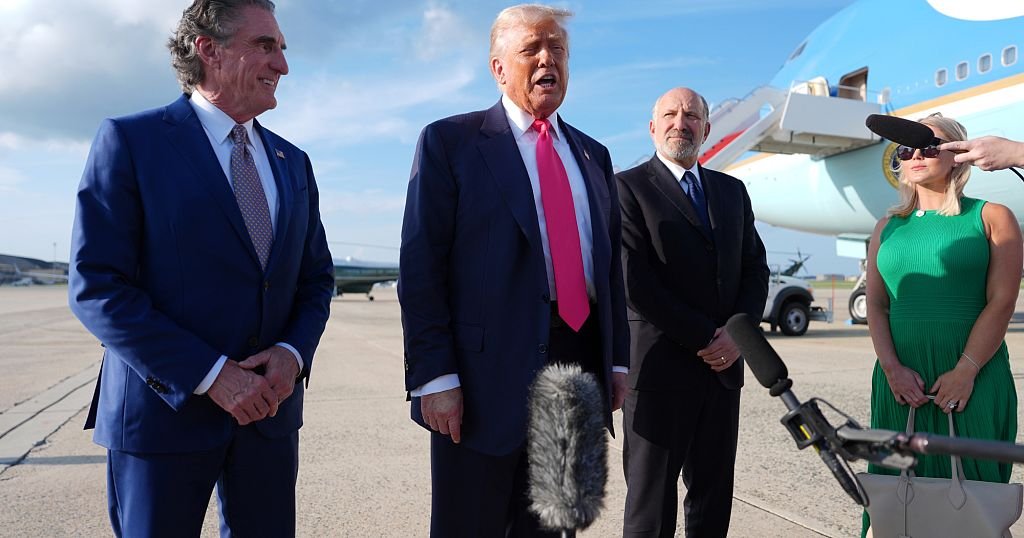
US President Donald Trump is ramping up his tariff agenda, announcing plans to impose new duties of over 10 percent on imports from smaller nations, including several in Africa and the Caribbean. The move marks a sharp shift in US trade policy, aimed at what Trump describes as “reciprocal” treatment.
Several African countries are already preparing for steep increases. Lesotho, a small Southern African nation, could face tariffs as high as 50 percent on goods exported to the United States. While the tariffs are currently on hold during a three-month consultation period, concerns are rising over the long-term economic fallout.
“These are countries. Many of them, you know, like 200 countries,” Trump said in response to questions about which nations would be affected. “We’ll probably set one tariff for all of them.”
US Commerce Secretary Howard Lutnick supported the move, saying the President plans to handle small nations in the way he believes is most effective. “The Caribbean countries, African countries. There are a lot of them,” Lutnick said.
The World Trade Organization is urging the United States to reconsider. WTO Director-General Ngozi Okonjo-Iweala has called for African countries to be exempt from the proposed tariffs, warning that such actions could severely damage developing economies and undo years of progress.
As the consultation period unfolds, both affected countries and international trade bodies are calling for dialogue. They hope to avoid a new wave of economic instability, especially for vulnerable economies dependent on exports.
-

 Europe5 days ago
Europe5 days agoAs South Korea becomes a key arms supplier to US allies, its best customer is on the edge of a warzone
-

 Africa4 days ago
Africa4 days agoUN warns of worsening violence and mass displacement in Haiti, in new report
-

 Sports4 days ago
Sports4 days agoAmanda Anisimova vows to return stronger after being ‘frozen’ with nerves during Wimbledon final defeat
-
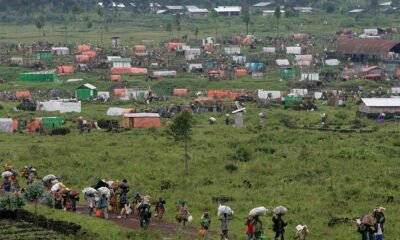
 Africa4 days ago
Africa4 days agoUganda reopens border with M23-held eastern DRC
-

 Europe5 days ago
Europe5 days agoWhy sweating might get you pulled over at airport security
-
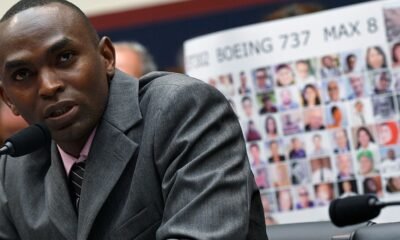
 Africa5 days ago
Africa5 days agoBoeing reaches settlement with man who lost entire family in 737 MAX Crash
-
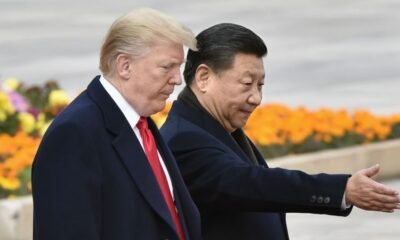
 Asia4 days ago
Asia4 days agoThe deadly drug that’s complicating US-China trade
-
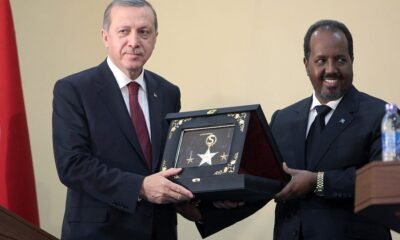
 Africa5 days ago
Africa5 days agoSomalia-Ethiopia tensions escalate as port deal talks stall




